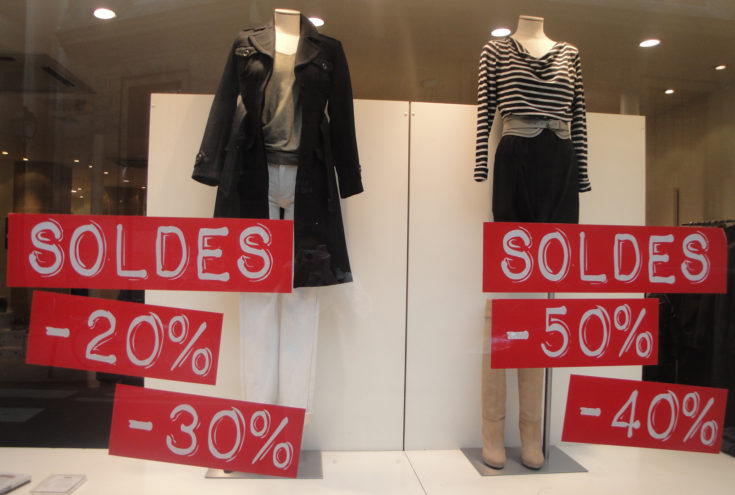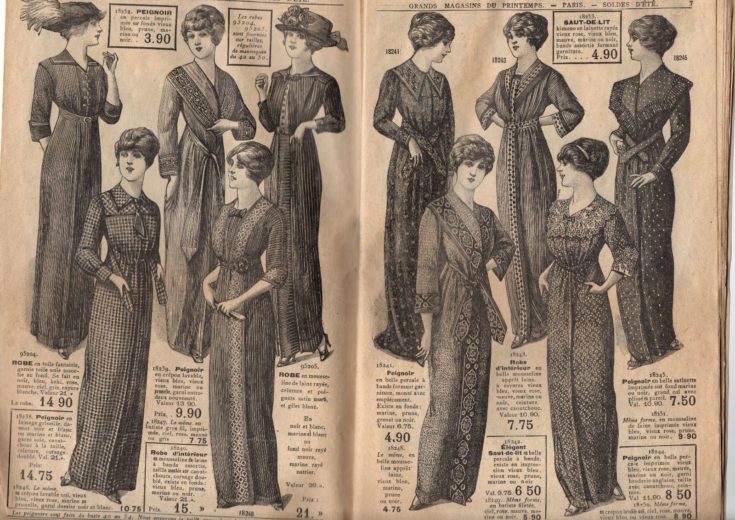Tourists visiting the French capital invariably pay attention to the stylish clothes of almost all the locals. The secret of Parisians is very simple: most of them buy brand-name clothes at regular sales. If you are lucky, you can even buy designer items at these sales without causing excessive damage to your household budget.
Discounts: a little bit of history
The first sales took place in France in the first half of the 19th century. In 1830, an enterprising merchant Simon Mannouri made a “small revolution” in trade by opening one of the first Parisian department stores, Le Petit Saint-Thomas. In it, he used principles well known to modern shoppers: free access to the counters, sale of goods at fixed prices written on the labels, the possibility of exchange and return of products. To get rid of stale items from previous seasons, the entrepreneur also started holding regular sales. Mannouri’s initiatives, including discount campaigns, were adopted by the owners of the major department stores that opened later: Le Bon Marche, Le Printemps, Galeries Lafayette (Galeries Lafayette).
In 1906, the French government first issued a law concerning the conduct of sales. It was subsequently amended and revised several times, regulating the start and end dates of sales, as well as other aspects.
Discounts: summer, winter, floating discounts
Under current French law, there are two official sale seasons in France, each lasting 5 weeks:
Winter discounts (Soldes d’hiver)
The winter (Christmas) sale starts at the end of the winter holidays. The starting date is the second Wednesday of January, which, however, must not be later than the 12th (if this happens, discounts are announced a week earlier). The discount season is announced at the same time almost throughout France, except for some southern regions (Alpes-Miritime), where the start of the sale is delayed by two or three weeks.
Summer discounts (Soldes d’ete)
The summer discount season starts on the last Wednesday of June, but no later than the 28th (in which case the start is postponed a week earlier). As in winter, the sales cover all French départements at the same time, except for the regions mentioned above.
Floating discounts
For a long time in France, discount campaigns outside of the winter and summer sales period were forbidden by law. Only recently the government has decided to meet the needs of business by allowing additional discount seasons of no more than 14 days. They are called “floating”, as in this case the store owner has the right to determine the time of their conduct at will.

Some entrepreneurs add an extra two weeks to the officially authorized winter or (less often) summer sales. Others prefer to announce discounts in the off-season – in the fall or spring.
Stages of discounts
Parisian stores have a well-thought-out system for announcing discounts: The first wave falls at the very beginning of the sale. During this period you can buy things with minimal discounts (up to 30%), but stores offer a wide range of goods in different colors and sizes. The second wave comes 14-21 days after the start of the season. The size of discounts can increase up to 50%, but the counters are usually much thinner by this time. The third wave of discounts is characterized by the end of the sale. During this period, discounts can reach 70-80%, but the choice is very small, mostly clothes and shoes of non-marketable sizes. It is hardly possible to give a definite answer to the question, in which period of discounts is better to shop. Favorite designer clothes of standard sizes are better to take immediately, such products are usually sold out in the first wave of sales. Buyers who are not particularly important style or coloring, can wait for the second wave of discounts. The owners of non-standard figures are also on the plus side: during the sale period they have an excellent chance to buy beautiful products at minimal prices.
Tips:
- If you stay in Paris for a long time, it is better to prepare for the discount season in advance, running through the stores where the desired goods are presented and trying them on in a relaxed atmosphere. During the discount period there are too many people in boutiques and shopping centers.
- To avoid crowds in the stores, it is better to visit them on weekdays, arriving at the opening time.
- During the discount period, many retailers operate on a special schedule, extending the hours of operation.
- In some stores, sellers don’t put the new price on the labels, but cover them with colored stickers: green means a 30% discount and red means a 50% discount.
- Not finding on the counter thing of the right size or color, you can try to go to the boutique in a few days: the range of discount goods periodically replenished (especially in the first week of sales).
- You should not pass by the “piles” of various products that are often formed near fitting rooms. Quite often you can find interesting products in them, which have already run out on the shelves.
- Parisians prefer to buy items during the winter sales period, as they believe that this time is more conducive to shopping. In addition, the flow of tourists is somewhat reduced during this period.
YOU MIGHT BE INTERESTED IN THIS:
- Transferts in Paris
- Private Paris City Tour
- Private Tour to Champagne
- Private Tour to Normandy
- Private Tour Loire Vallley Castles
- Private Tour Mont St Michel
- Private Tour to Bruges



